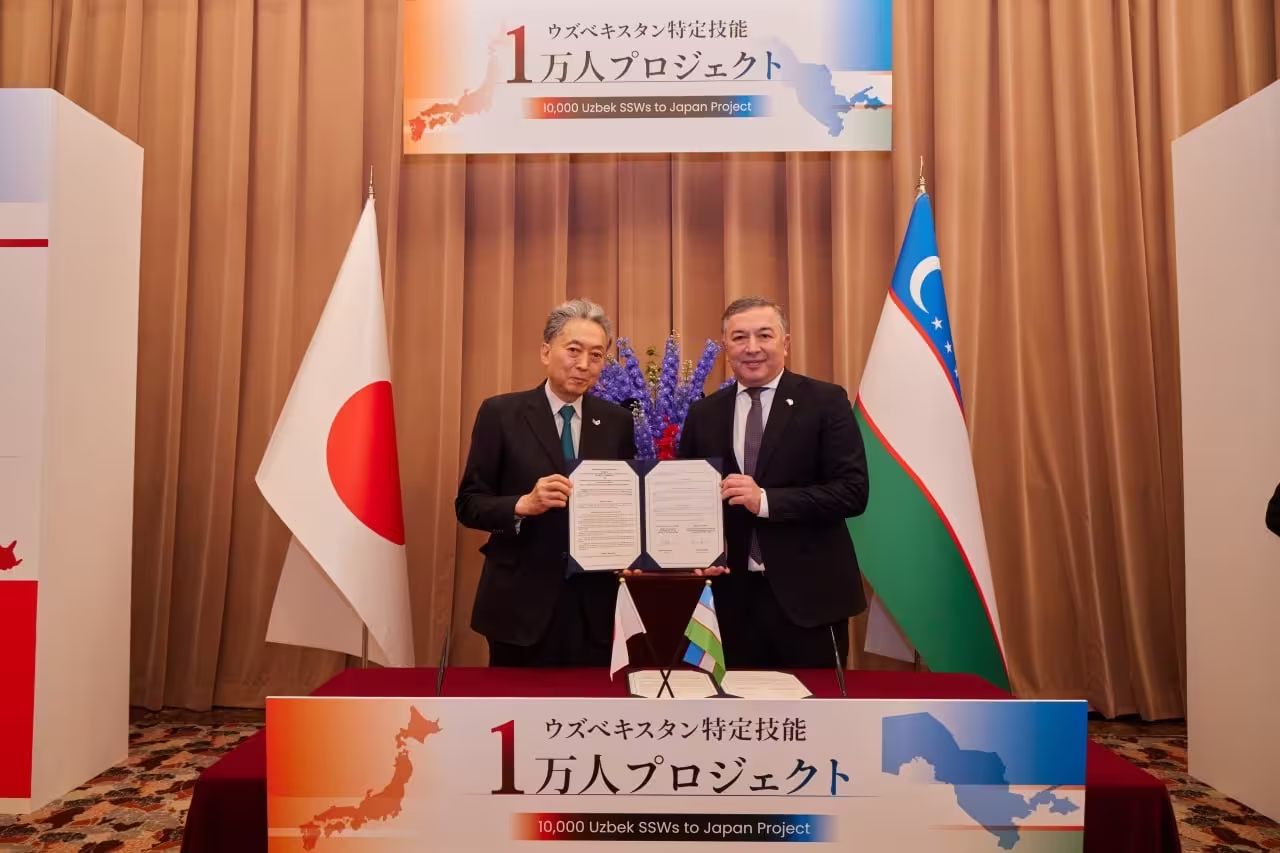Japan and Uzbekistan have launched a new partnership aimed at preparing 10,000 young Uzbek professionals for employment opportunities in the Japanese labor market, according to Uzbekistan’s Agency for External Labor Migration.

The initiative stems from a cooperation agreement signed between the Agency and Japan-China-Asia Medical Educational Cultural Exchange General Incorporated Association. The project, titled “Attracting 10,000 Uzbek Specialists to the Japanese Market,” focuses on equipping Uzbeks with the skills and language proficiency needed to work in Japan.
Initial training activities will be rolled out in the Tashkent, Samarkand, and Namangan regions. Through the “Light of Japanese Mastery” training courses, participants will:
- Learn Japanese,
- Prepare for professional qualification exams,
- Develop skills required for employment in Japan.
An online platform, WiseBridge, will also be launched in June 2025 to facilitate job matching. The portal will allow job seekers in Uzbekistan to explore vacancies and communicate directly with Japanese employers.
Speaking on the launch, former Japanese Prime Minister Yukio Hatoyama, who heads the Japanese partner organization, stated:
“Uzbekistan, with its dynamic youth and growing labor market potential, is becoming one of Japan’s trusted partners in labor migration.”
Broader International Demand for Uzbek Specialists
Uzbek medical workers—especially nurses—are increasingly being recruited abroad. During a recent meeting between Deputy Director of the Migration Agency Azimjon Khusanov and Fozilbek Khankhodjayev, Managing Director of the New Future Success Academy, it was revealed that Uzbek nurses are being trained for deployment to the United States, where demand for over 1mn nurses is projected by 2030.
Additionally, Qatar has announced ten nursing vacancies for Uzbek citizens, offering a monthly salary of $2,750. Candidates must be between 18 and 50 years old, possess at least two years of medical experience, and demonstrate strong English skills. The job requires working 48 hours a week on a six-day schedule in a rotating three-shift system.
Between 2018 and 2023, 16% of Uzbekistan’s population income came from remittances sent by labor migrants. Each year, Uzbek citizens working abroad remit between $12–15bn, playing a crucial role in supporting families and the national economy.




